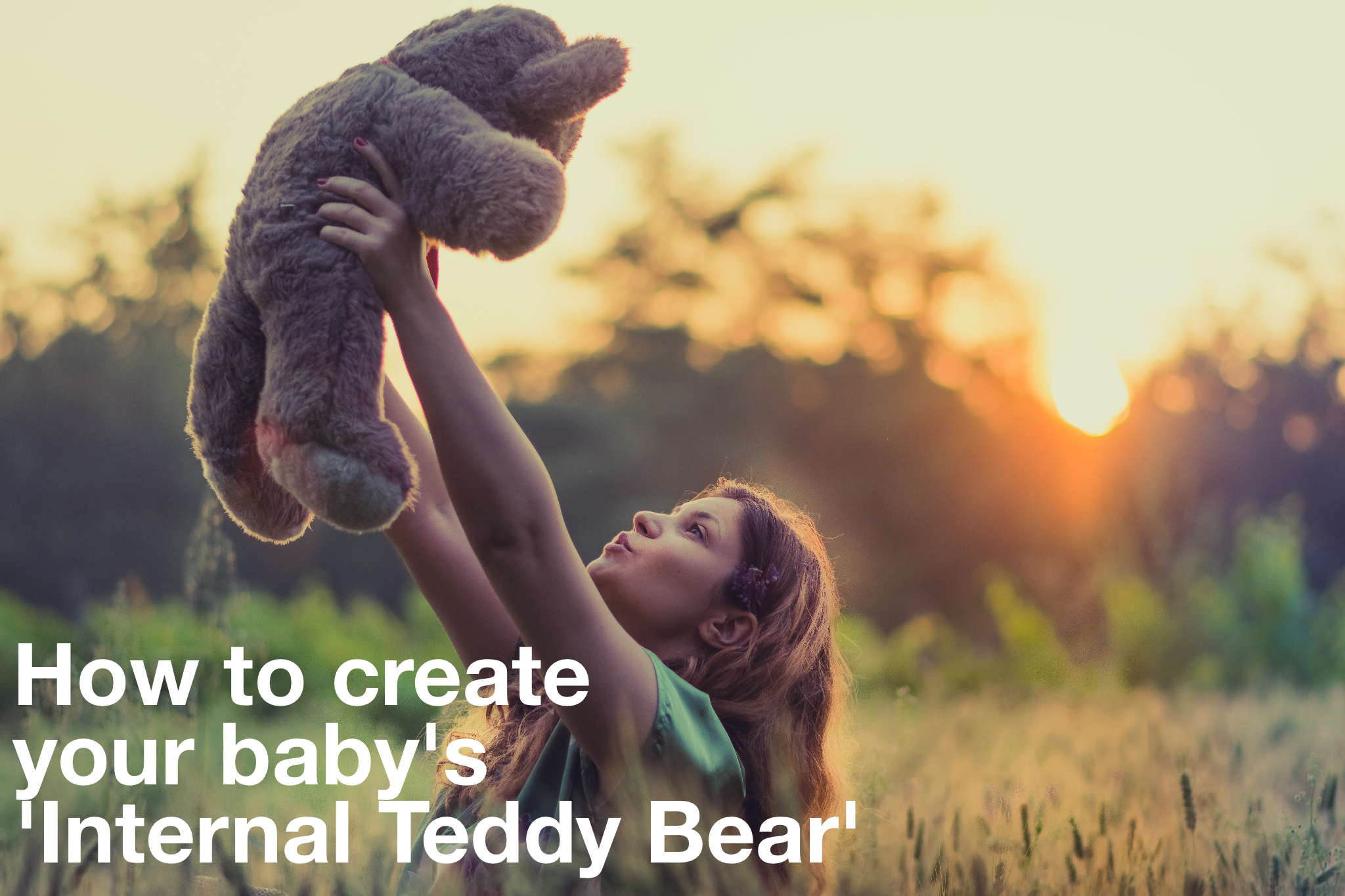
02 May How to create your baby’s ‘Internal Teddy Bear’
Think of a Teddy Bear – cuddly, calming, reassuring, something to hold onto when the world feels like a scary place.
Dr Suzanne Zeedyk a researcher on child development introduced the idea of the ‘Internal Teddy Bear’ to explain ‘self-regulation’ – our ability to regulate strong emotions. Our babies go through lots of strong emotions and as parents, we have an important part to play in laying the foundations for creating their ‘Internal Teddy Bear’ to help them cope.
What is an ‘Internal Teddy Bear’ how does it develop, and why is it so important?
Our babies are born with a biological need to bond with us for survival. A baby is fairly helpless on their own so it makes sense that they are finely tuned to bring attention to themselves, usually in a fairly noisy way.
Babies can be scared of all sorts of things that we as adults wouldn’t think are scary. This acute fear response serves them well in evolutionary terms, as Dr Suzanne Zeedyk describes ‘The fear comes from long ago in our evolutionary past when predators like tigers roamed villages. Babies who can’t yet run away from predators needed to be able to call on someone to help’. They need our help to know they are safe and reduce the fear response – because not everything is actually a Sabre Tooth Tiger!
Babies experience lots of strong emotions and can easily become overwhelmed by them be it fear, joy, frustration, surprise, loneliness or discomfort. Parents can help them cope with those feelings, this may happen through a combination of touch, holding, a gentle soothing voice and creating a comfortable environment for them (all aspects we would include in our baby massage classes, just sayin’ )
With this help from parents and over time a baby’s brain and body develops the capacity to handle strong emotions, this is called ‘Self-regulation’. Self-regulation is their ‘Internal Teddy Bear’ providing calm and reassurance. ‘Attachment’ is the process which helps a child to grow a strong self-regulatory system. This comes about from reliable responsive parenting. The capacity to self-regulate will guard against mental and physical health problems and positively impact the way their relationships develop. Helping your baby or young child with their big emotions provides the foundation for their health going forward. Those hugs, touches, reassuring kind words and above all LOVE are doing some pretty amazing things – far from ‘spoiling’ them (I can’t believe I still hear this) its the key to them developing into happy, functioning humans.

Sorry, the comment form is closed at this time.